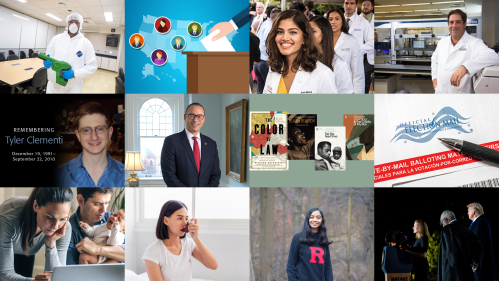A global pandemic, racial reckoning, a divided country and a contentious election: 2020 threw more challenges at us than we ever could have imagined. But while we struggled, Rutgers also came together as a community to face an unprecedented year. From significant contributions in fighting a global pandemic and welcoming a new president to honoring our scholars and essential workers, we showed resilience and strength as we rose to meet the moment.
Take a look at some of the most-read Rutgers Today stories from this year that changed us all.
New Rutgers Saliva Test for Coronavirus Gets FDA Approval
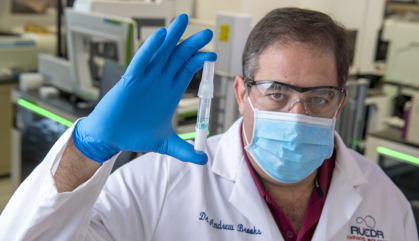
The Food and Drug Administration granted emergency use authorization to Rutgers’ RUCDR Infinite Biologics and its collaborators in April for a new collection approach that utilizes saliva as the primary test biomaterial for the SARS-CoV-2 coronavirus, the first such approval granted by the federal agency.
The saliva collection method, which RUCDR developed in partnership with Spectrum Solutions and Accurate Diagnostic Labs (ADL), allowed for broader population screening.
Asthma Does Not Seem to Increase the Severity of COVID-19
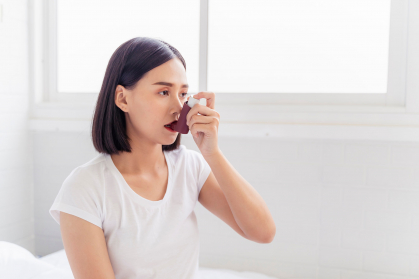
Asthma does not appear to increase the risk for a person contracting COVID-19 or influence its severity, according to a team of Rutgers researchers.
“Older age and conditions such as heart disease, high blood pressure, chronic obstructive pulmonary disease, diabetes and obesity are reported risk factors for the development and progression of COVID-19,” said Reynold A. Panettieri Jr., a pulmonary critical care physician and director of the Rutgers Institute for Translational Medicine and Science and co-author of a paper published in the Journal of Allergy and Clinical Immunology.
“However, people with asthma — even those with diminished lung function who are being treated to manage asthmatic inflammation — seem to be no worse affected by SARS-CoV-2 than a non-asthmatic person. There is limited data as to why this is the case — if it is physiological or a result of the treatment to manage the inflammation.”
Panettieri discusses what we know about asthma and inflammation and the important questions that still need to be answered.
What Is Court Packing?
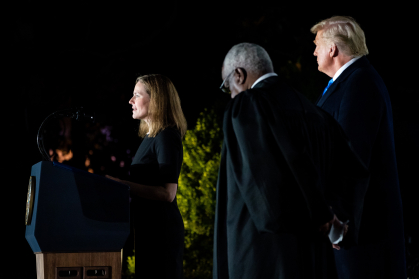
The confirmation of Supreme Court Associate Justice Amy Coney Barrett eight days before the election by a partisan 52-48 vote renewed questions about whether Democrats would try to increase the number of justices on the country’s highest court. The move was particularly polarizing because Republicans refused to consider President Obama's nominee Merrick Garland to fill a vacancy that occurred nine months before the 2016 election, but rushed to fill the seat following the death of liberal stalwart Ruth Bader Ginsburg.
Rutgers Law School professor David Noll, whose scholarship and writing focus on the federal courts, explained the issues at the heart of the debate and how Republicans share the blame for the prospect of an expanded Supreme Court.
Rutgers Honors Tyler Clementi 10 Years Later
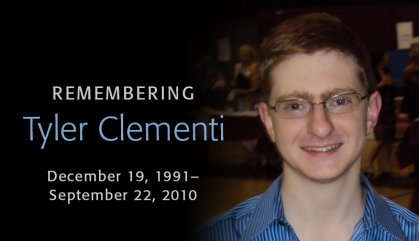
A decade ago, Tyler Clementi arrived at Rutgers to begin his first year of college after he started his personal journey of coming out to close friends and family. At 18, he was an accomplished violinist and composer who wanted to perform with the Rutgers Symphony Orchestra.
But shortly after moving in, Clementi’s roommate began to ridicule and mock him on social media because of his sexual orientation. After Clementi asked his roommate for privacy to host a date, he became the victim of an act of cyber-harassment and invasion of privacy. Without Clementi’s knowledge or consent, his roommate livestreamed Clementi’s time with his date. Clementi died by suicide on Sept. 22, 2010 – less than one month into the academic year.
Although his time at Rutgers was tragically short, his legacy has been long lasting. His death sparked a national conversation about sexuality, cyber-harassment, safety, and inclusion within and beyond college campuses. Clementi’s story moved Rutgers and the nation to confront the ways that bias and bullying can affect campus communities, especially LGBTQA students, and has reshaped the support universities provide for students.
Rutgers University Among First in Country to Expedite Graduation of Medical Students
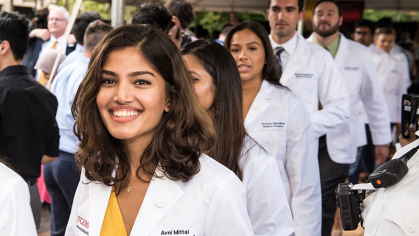
Rutgers New Jersey Medical School (NJMS) announced this spring that its 192 final-year students would graduate early and be eligible to begin their residencies and provide critical health care as the world combats the global COVID-19 pandemic. The students would have normally completed their required courses in April and then graduated in May. Instead, 154 graduated on April 10 and the rest graduated on April 21.
NJMS students were matched to their residency locations March 20 and most residencies began July 1. Residency locations, such as hospitals, determined whether the students would begin early. Sixty-two NJMS students matched to hospitals in New Jersey, and 58 matched to hospitals in New York, including 43 in New York City. First-year residents are critical members of care teams and are supervised by attending physicians.
Rutgers Computer Science Major Becomes University's Second Marshall Scholar
Watching a family member die had a profound effect on Maya Ravichandran.
Though she was only 5, the Rutgers senior said the experience of losing her grandfather to leukemia while he lived with her family in Holmdel continues to guide her as she pursues a career in an emerging field as a physician-scientist working with artificial intelligence (AI).
“It was pretty tough. So that was definitely a motivation,” said the 20-year-old computer science major in the School of Arts and Sciences at Rutgers-New Brunswick, where she is also a member of the Honors College. “I think the use of AI in medicine has not at all reached its potential. It’s largely untapped at this point. I like the idea of being able to use these new technologies to cure and prevent diseases such as cancer.”
Meet Rutgers Essential Workers
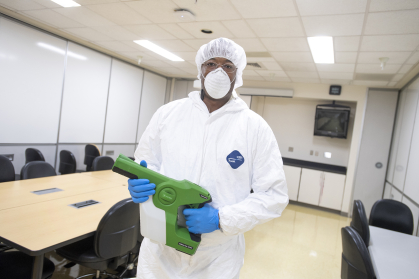
Essential workers at Rutgers have kept the university running and served others who remained on campus while most of the community has been working remotely since March.
They have maintained the buildings and grounds; kept faculty, staff and students connected online; served the hungry and provided other services. We spent some time talking to the workers about how the pandemic has changed their lives and jobs. Here are their stories.
Books on Race, Racism, and the Black American Experience to Read Now
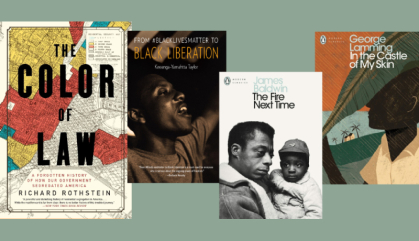
In these socially charged times, one of the most important things in the fight against systemic racism and our own internal biases is education. Faculty at Rutgers University-Newark teach and work at one of the most diverse universities in the United States, and their research covers race and bias from across a wide range of disciplines in the arts, humanities, sciences, business and law. We put out a general call asking for book recommendations on the Black experience in America, and the response was immediate and overwhelming. Our faculty recommend their current and classic favorites and tell us why we should read them now.
Jonathan Holloway Named 21st President of Rutgers, The State University of New Jersey
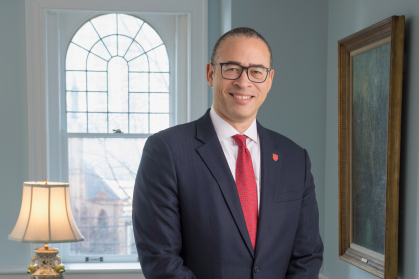
Jonathan Holloway, former provost of Northwestern University and an eminent historian, was appointed the 21st president of Rutgers, The State University of New Jersey.
The Rutgers Board of Governors, with the advice and consent of the Rutgers Board of Trustees, approved Holloway’s appointment at a joint meeting of the two boards in January. The Board of Governors also appointed Holloway as a University Professor and Distinguished Professor.
Holloway began serving as president on July 1, 2020, succeeding President Robert Barchi, who began his tenure in September 2012.
Is Voter Fraud a Danger or a Myth?

In the homestretch of the 2020 U.S. presidential election, the conversation surrounding mail-in ballots hit a fever pitch. The big question: is voter fraud real and do mail-in ballots make voting more susceptible to it?
Lorraine C. Minnite, an associate professor of public policy at Rutgers University–Camden, who wrote the book, The Myth of Voter Fraud, provided some answers.
Time to Abandon the Electoral College?

It seems like clockwork every four years: a U.S. presidential election takes place, the electoral and popular votes are tallied, and the debate over the use of the Electoral College promptly ensues.
By that time, says Andrew Shankman, the discussion is long overdue – in fact, over 200 years and counting.
“Most people have little knowledge of the Electoral College’s origins and history, so this lack of understanding fuels the bitter divide over the issue – and what we should do about it,” says the professor of history at Rutgers University–Camden.
Job Satisfaction, Productivity Rise for Working Parents During COVID-19

Juggling diaper changes and Zoom meetings might be a good combination for some Americans. A new survey by researchers at Rutgers University reveals that working parents are happier with their job, and they are getting more done, than people without children. Researchers attribute the surprising results to a sharp increase in the number of men helping with childcare and housework during the pandemic.
“We found that men’s increased contributions at home have a positive influence on women’s job satisfaction and productivity,” said Kristina Durante, director of research at the Center for Women in Business at Rutgers Business School. “When dads play a bigger role in childcare and doing routine housework, it puts both parents in a better position to succeed at work.”
